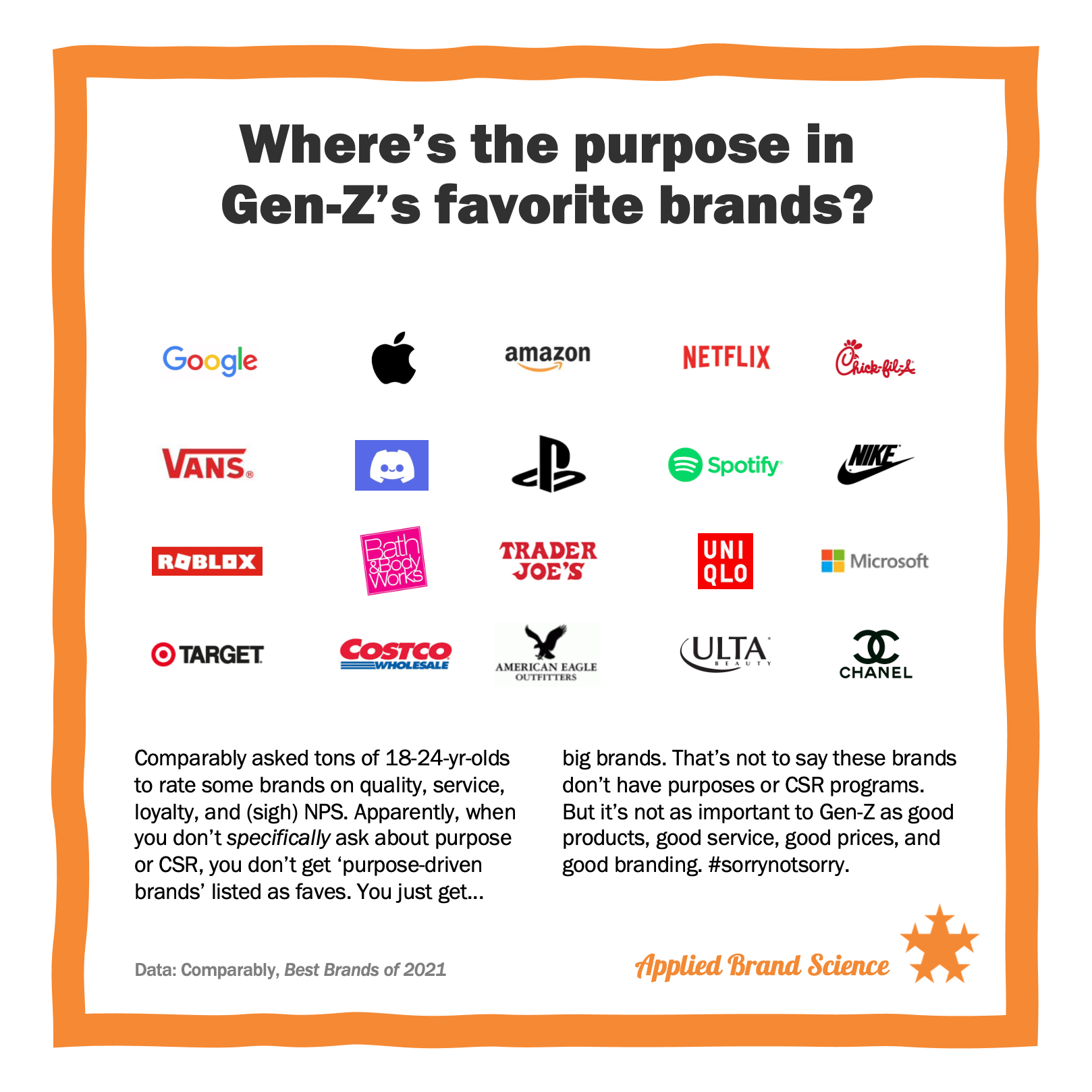Does GEN-Z Really Prefer Brands With Purpose?
Maybe, but only if you mention it, like?
@Comparably asked some 18-24-yr-olds around the world to rate a bunch of brands on quality, service, loyalty, and (sigh) NPS. They then combined that into overall favorites for the whole swath of young’uns.
Apparently, when you don’t specifically ask about purpose or CSR, you don’t get Patagonia, Seventh Generation, or Dove.
Instead, you just get... big brands. Google. Apple. Ulta. Amazon. Nike. Spotify. Microsoft.
And lots of junk food. Seven of the top 20 (35%) are stuff like Pringles, Doritos, and Oreos.
None of these brands are really known for their commitment to a lofty ‘brand purpose’.
That’s not to say they don’t have purposes or CSR programs or ESG initiatives. Costco treats employees really well. Nike does stuff to advance women’s sports & racial justice. And Target is famous for championing diversity & inclusion in their advertising.
But it’s not as important to Gen-Z as good products, good service, good prices, and good branding. And I’d bet a pair of Allbirds that Gen-Z is largely oblivious to it. #sorrynotsorry.
This suggests three important things:
All the surveys about young people (or anyone) saying they prefer to buy from brands with a purpose or whatnot need to be seen for what they are: measures of how people want to be perceived when they’re surveyed, NOT measures of what brands they’re really likely to buy from.
“Favorite” brands are often just big, obvious, easy-to-remember brands that are doing the basics right: product, price, place (distribution), & promotion (ads & such). It’s almost circular.
Generational stereotypes are dicey. There’s often as much or more variation WITHIN generations as there is between them: hedge fund interns, auto mechanics, teachers, coders, meat packers, and students, from Augusta, ME to Zapata, TX.
Read more here: https://www.comparably.com/news/best-brands-of-2021-according-to-gen-z-millennials/

